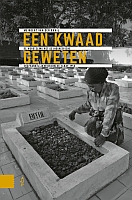Een kwaad geweten
De worsteling met de Indonesische onafhankelijkheidsoorlog vanaf 1950
Abstract
For a long time, the war in Indonesia and the extreme violence used by the Dutch troops were not a subject that was much discussed or written about in the Netherlands. After the end of the war, the government made great efforts to avoid discussions about it or even to nip them in the bud. The revelations by East Indies veteran Joop Hueting in 1969 initially led to great commotion, resulting in the 'Excessennota' and the government position that the armed forces had behaved correctly, apart from a number of 'excesses'. That was it, until in recent decades more and more indications emerged that the armed forces had used extreme violence on a larger scale. Not only politicians but also journalists, historians and history teachers struggled with the violent decolonisation of Indonesia. The groups most affected, such as veterans, Moluccans and Indo-Europeans, were also reluctant for a long time to talk about their often bitter experiences in public. Finally, Indonesia also did not seem very interested in reviving this history of mutual violence. As a result, it was only very late, very cautiously and jerkily, that the war gained a place in the Dutch culture of remembrance.
Keywords
Indonesia; decolonization; independence; violence; war; Indonesië; dekolonisatie; onafhankelijkheid; geweld; oorlogDOI
10.5117/9789463720687ISBN
9789463720687, 9789048556854, 9789463720687Publisher
Amsterdam University PressPublisher website
https://www.aup.nl/Publication date and place
2022Classification
National liberation and independence
Military history: post-WW2 conflicts
Modern warfare
Armed conflict


 Download
Download Web Shop
Web Shop